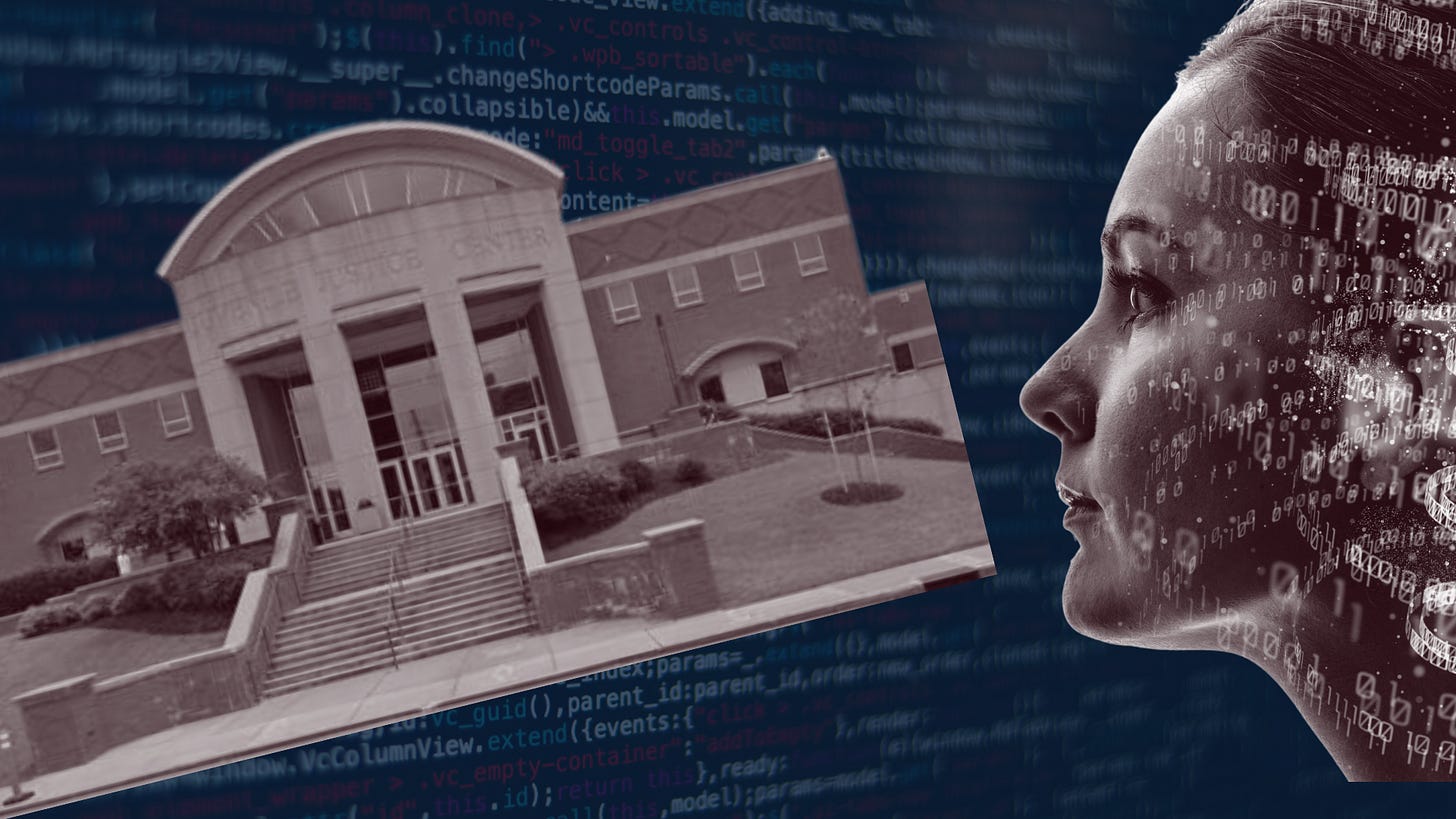Delinquents to Developers: Davidson County Detention Center rolls out coding course to reduce recidivism
Wilder Youth Development & Wayne Halfway House will also partner with Persevere on the program
For many troubled teens, a sentence to juvie feels like a sentence to fail. Statistically speaking — it is. 80-percent of juvenile offenders end up back behind bars within three years, less than 2-percent ever enroll in higher education. Prison is their most likely career path.
Persevere doesn’t believe children should be chained to their past. The social justice organization has created a coding course, so incarcerated youth can engineer a future outside correctional facilities. It’s designed to turn delinquents into developers.
The program’s beta testers are inside the Davidson County Juvenile Detention Center. Last month, Persevere kicked off its first cohort.
“If correctional facilities aren’t creating opportunity, they’re creating future inmates,” says Persevere founder and CEO Sean Hosman. “We’re excited to partner with DCJD to create opportunities.”
Program
According to Program Manager Audrey Barnes, the elective course will equip incarcerated youth with foundation in front-end development — coding that creates the visuals individuals see on their screens, when using apps and websites.
With these tech skills, teens will be able to apply for internships and apprenticeships with wages upwards of $25/hr upon release.
Persevere will help place them. The national nonprofit has existing relationships with well known tech companies including — Indeed, Slack, Cornbread Hustle, Forbes — through its bootcamp for adult inmates.
Barnes says the course is an elective and does not replace regular academics. It’s structured similar to an after school program.
While incarcerated, participants will receive two hours of in-person instruction two days a week. Basic coding languages — including coffeescript (a precursor to the one of most widely used languages, Javascript) and Python — are introduced through Code Monkey, a popular tech education platform. As individuals excel, more advanced languages like Javascript will be added.
Learning doesn’t end when youth leave the facility. Persevere will provide virtual instruction to teens a year after they are released.
The organization will also work alongside probation officers to ensure youth receive the mental health resources they need to re-adjust and re-enter society successfully.
“We take a holistic approach,” says Barnes. “It's so much more than just teaching them to code. It’s supporting sustainable futures.”
The justice organization intends to accommodate 10 cohorts, 40 students, over the next 12 months. Youth ages 13-17 are eligible to apply. Participants are selected based on aptitude and interest.
Barnes has already interviewed 15+ applicants. She asked each of them about their plans post release. The most common answer wasn't college.
“They want to get a job and provide for their family,” she tells TENNBEAT. “Most of them come from low income households and are looking for the quickest, legal way to earn a living.”
According to the Tennessee Commission on Children and Youth, more than 60% of incarcerated adolescents come from families who live below the federal poverty level.
Financial instability and correctional facilities are inextricably linked.
“People often end up back in prison because they committed a crime — selling drugs, stealing — to survive,” Hosman explains. “All most people have when they’re released is a record — no money, no housing, no job prospects. The system doesn’t set them up for success.”
Founding Persevere
He has seen this scenario firsthand. The addict turned serial entrepreneur was arrested 12 times between 2010 and 2012.
“Just as my career was becoming the most successful it had ever been, I became an alcoholic and a drug addict,” Hosman says. “In July 2012, I made the decision to get clean and sober and return to the tech company I started.”
His friends were not as fortunate. The former inmates struggled to find stable employment or any employment at all. At first, he didn’t understand, but then it clicked.
“I was able to re-enter society because of the tech skills I had,” Hosmans tells TENNBEAT. “Technology is one of society’s great equalizers. The industry as a whole is more accepting of non-traditional candidates, including those with a criminal history.”
Many roles do not require four-year degrees. Short, high intensity accelerators — more cost and time effective than college — lower the barrier to enter the industry.
The epiphany inspired the ex-con. Hosman began building out his own bootcamp. In 2014, he launched Persevere. The organization’s 12-month coding bootcamp equips prisoners with highly-sought after technical skills, so they can re-enter the workforce and earn a stable living.
It has unlocked new futures for incarcerated individuals all across the U.S. Today, Persevere serves 12 adult facilities across 7 states — Tennessee, Arizona, South Carolina, Georgia, Nebraska, Virginia, Florida. Massachusetts and Alaska will also be added to the map later this year.
The recidivism rate of those who have completed the adult program is less than 2-percent.
Hosman predicts Persevere’s new youth program will be as successful.
“It’s a different program, but we are applying the same principles that have worked on the adult level,” says Hosman. “These teens won’t become inmates. They’ll be IT professionals, entrepreneurs, coders and leaders in our community.”
Persevere has plans to roll out its program in two other Tennessee facilities this year — Wilder Youth Development and Wayne Halfway House.
*Help us tell more stories like this. Our publication is powered by donations from individuals and businesses like you. The more contributions we receive, the more stories we can cover. Whether you can afford to give one time or multiple times (set-up a recurring contributions), every dollar makes a difference. TENNBEAT is a 501c3 nonprofit. All donations are tax deductible.



